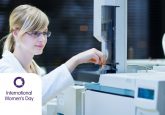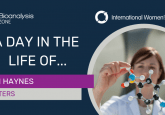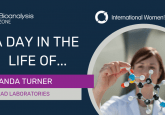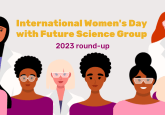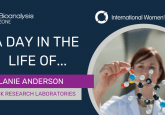Advice to my younger self with Fern Adams-Dam and Burcu Uner

In our fourth and final interview to celebrate International Women’s Day (IWD), we spoke to Fern Adams-Dam and Burcu Uner to reflect on their careers so far and highlight the resources, networks and mentors they draw upon to support their career development. Find all of our 2023 IWD content, as well as the other interviews in this series, here.
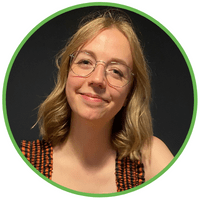 Fern Adams-Dam
Fern Adams-Dam
Senior Scientist
York Bioanalytical Solutions (YBS; UK)
Fern has nearly a decade of experience working with YBS in various roles, specializing in LC-MS/MS–based method validations and the regulatory analysis of samples from clinical studies or non-clinical bioanalytical study phases. Fern received her BSc in Pharmacology from the University of Leeds (UK).
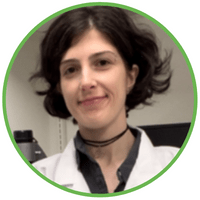 Burcu Uner
Burcu Uner
Postdoctoral Research Associate
University of Health Sciences & Pharmacy (MO, USA)
After working at a handful of pharmaceutical companies as a Regulatory Affairs / Pharmacovigilance Specialist, Burcu completed her doctorate at Istanbul University (Turkey) and now works as a Postdoctoral fellow at the University of Health Sciences & Pharmacy.
Questions
Fern:
- 18-21: Achieved a Pharmacology BSc (Hons) from the University of Leeds.
- Spent four months in industry during my undergraduate studies as an intern in the receptor biology research department at Novartis (Horsham, UK).
- 21-22: Clinical trials assistant in the hematology department of St James University Hospital (Leeds, UK).
- 22-24: Senior laboratory technician in the delivery LC-MS department at YBS. Since then, I have held the following roles:
- 24-26: Associate Scientist
- 26-27: Senior Associate Scientist
- 27-30: Scientist. From here onwards my role has primarily focused on managing LC-MS/MS–based method validations and the regulatory analysis of samples from clinical studies or non-clinical Bioanalytical study phases.
- 30-present: Senior Scientist
Burcu:
- I received my BPharm degree from Marmara University Faculty of Pharmacy (Istanbul, Turkey) in 2014.
- I was working at various pharmaceutical companies as a Regulatory Affairs/ Pharmacovigilance Specialist until I found my purpose! These included:
- GlaxoSmithKline (Brentford, UK)
- Adeka (Tokyo, Japan)
- SIFI (Lombardia, Italy)
- Boehringer (Ingelheim, Germany)
- I had been working as a Research Assistant in the Pharmaceutical Technology Department at Yeditepe University for 4 years before earning my doctorate in 2021 from the Institute of Health Sciences, Department of Pharmaceutical Technology, Istanbul University (both: Istanbul, Turkey).
- I have now become a member of different kinds of projects, including TUBITAK-1001,1002 and BIGG WIND 1512, and BAP-Hacettepe collaborated. Forthwith, I have been working at Giovanni Pauletti’s research lab (MO, US) as a Postdoctoral Fellow regarding the National Institute of Health (NIH) project for 10 months.
Fern: I have a great network of colleagues who are always supportive. It’s great to be able to share ideas and perspectives on scientific and regulatory topics in a friendly and open workplace.
Burcu: I describe my advisors as mentors. Of course, they are human as well, and I tried to remember this crucial information during my thesis period. The best thing I have learned is that you should act calmly and make your decisions wisely. Driving fast is not always suitable due to the effect it can have on your priorities. But I could honestly reveal one thing: if I need to act slowly, my natural instinct is to go fast, but slowing down is something I am trying to get used to.
Before imagining your day, you cannot make assumptions about that particular action. So, the second goal each day is to be prepared for every different scenario. Even if my data/analysis result doesn’t look delightful, I learned to deal with it anyway. When it comes to my current advisors, I would say that I learn one new thing from them every day.
Fern: I try to be fully present in what I’m doing, whether that be at work or in my personal life and I think it’s important to take time to participate in things I enjoy outside of my career, such as spending time with friends and family, film, food, travel and being outside in nature.
Burcu: One of my most influential supporters is my husband. He makes me feel that I can do whatever I want. He is my best friend, my love and we understand each other even if we don’t talk. Before coming to the US, I asked him “Should I apply for this position?” and he said, “What are you waiting for, a red carpet or something!”. And after being accepted, he didn’t even think for a moment about quitting his job to move with me to the US, despite working as a hospital pharmacist for 8 years before we moved.
Of course, I miss my daughter; sometimes, I need to work a whole day without a break and even when I arrive home, the marathon goes on. But thank God she accepts my rain checks and gives me time to make up my faults. I also always keep a whole day free for her. I know I couldn’t make up the time that has already gone, but at least I know what precious things I have.
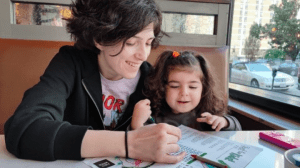
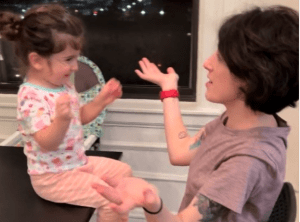
Fern: I have found it very useful to attend bioanalytical community events, such as those held by the European Bioanalytical Forum (Barcelona, Spain) to meet with people in the wider industry.
Burcu: I am a member of AAPS (American Association of Pharmaceutical Scientists) and we have different kinds of communities related to the expertise area such as Targeted drug Drug Delivery, Topical Drugs, Student Community, and Women in the Pharmaceutical Science Community (WISC) is available as well. WISC not only provides information related to your proficiency or expertise, but they provide variable e-certificate programs in different subject areas most in demand from the voting members.
Fern: I am proud to have played a small role in supporting the progression of a number of drugs towards regulatory approval, to hopefully change patients’ lives for the better.
Burcu: This actually came up very recently: one of my professors has invited me to be a speaker at a symposium. I felt proud that I could accomplish something that my professor had selected me for.
Fern: I get the feeling that STEM industries are no longer seen as heavily male–dominated spaces and from my experience, it’s a welcoming industry to people of all genders. I am looking forward to seeing the development of new and cutting-edge techniques and also seeing clinical research becoming more patient-centric and adapting bioanalytical methods to support this.
Fern: I really value the strong working relationships I have with my colleagues and clients and find it extremely rewarding to play a small part in getting life-changing drugs into the market and available to patients. The most challenging part is the fast pace of a busy Contract Research Organization and making sure to keep up with changing regulatory requirements.
Burcu: I am excited to reach new horizons by contributing significantly to this field of research, especially in nano-drug delivery systems. In my current work as a Postdoctoral Research Associate, my objective is to combine biological sciences and pharmaceutical sciences that are needed in current drug delivery to achieve better therapeutics.
Although a large proportion of nanomedicines have been dedicated to tricky diseases, nanotechnology could constitute a valuable resource for numerous other diseases, and the new applications that are developed can help to advance research horizons. Two crucial factors of the nano-drug delivery systems, which are efficaciously and safely delivering drugs to target areas, are contributing to the challenges of their applications.
Fern: Don’t be afraid to take new opportunities. You always have to start somewhere, so don’t be afraid to try something new. It’s also not unusual to feel ‘imposter syndrome’ to some extent, so I would advise my younger self to feel less self-doubt as you are actually doing a great job!
Burcu: There isn’t one correct way to achieve something; it’s important to be open to change. This is the trickiest thing. It is even more challenging than achieving success.
Fern: Thanks to my colleagues, past and present, for sharing their knowledge and expertise.
Burcu: My former advisor Melike Uner and my thesis advisor Yildiz Ozsoy (both Istanbul University). I also want to shout out Erem Bilensoy (Hacettepe University, Turkey). Even if I haven’t had a chance to meet her, I follow her studies very closely. I hope we will meet one day! Finally, I’d like to thank my husband and my family for their undeniable support of me and my career.

